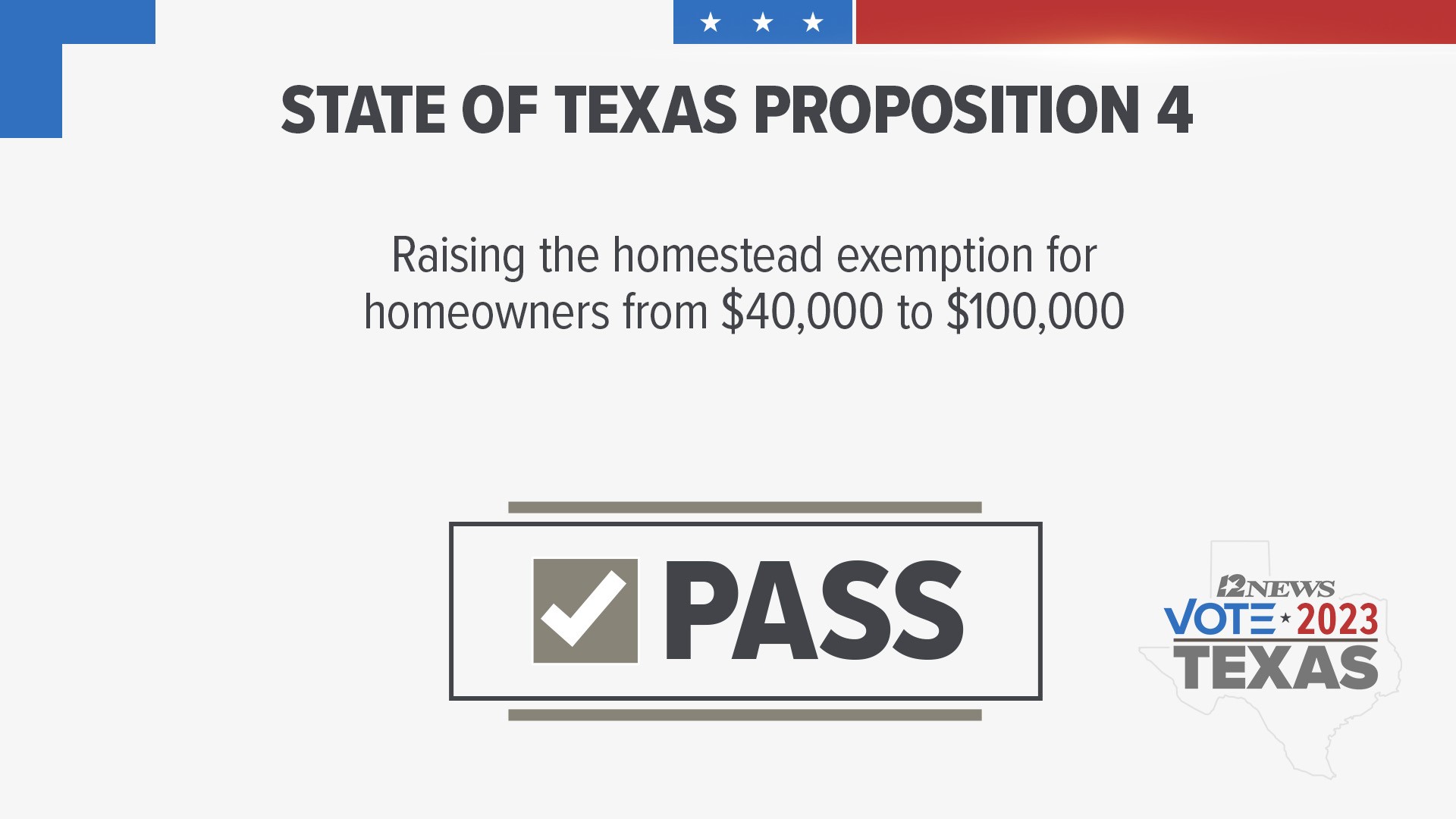BEAUMONT, Texas — Texas voters said a resounding yes to property tax relief by approving Proposition Four on Tuesday.
The Associated Press called the race at about 8 p.m. Tuesday with 84% of the vote in favor of passing the constitutional amendment.
Texas has some of the highest property taxes in the nation. Earlier this year, Texas lawmakers approved a $12.7 billion package of property tax cuts that needed voter approval in order to take effect.
The package will send $7.1 billion to school districts so they can lower their property tax rates. School district taxes make up the bulk of a Texas property owner's tax bill. The amendment will also raise the state's school district homestead exemption — or the slice of a home's value that can't be taxed to pay for public schools — from $40,000 to $100,000, at a cost of $5.6 billion.
The amendment also includes other tax reforms, including a temporary limit on appraisals for commercial, mineral and residential properties that don't receive a homestead exemption that are worth less than $5 million. If voters approve the idea, appraisal districts could not raise the taxable value of those properties by more than 20% each year for the next three years. The limit would expire in 2026 unless lawmakers and voters decide to extend it.
The amendment would also expand the pool of businesses that don't have to pay the state's franchise tax — and allow voters to elect three members to their local appraisal district's board of directors, which are currently appointed.
Here’s the full text of the amendment…
Proposition 4 – HJR 2 "The constitutional amendment to authorize the legislature to establish a temporary limit on the maximum appraised value of real property other than a residence homestead for ad valorem tax purposes; to increase the amount of the exemption from ad valorem taxation by a school district applicable to residence homesteads from $40,000 to $100,000; to adjust the amount of the limitation on school district ad valorem taxes imposed on the residence homesteads of the elderly or disabled to reflect increases in certain exemption amounts; to except certain appropriations to pay for ad valorem tax relief from the constitutional limitation on the rate of growth of appropriations; and to authorize the legislature to provide for a four-year term of office for a member of the board of directors of certain appraisal districts."
(EDITOR'S NOTE: The above video first aired on Oct.16, 2023)

